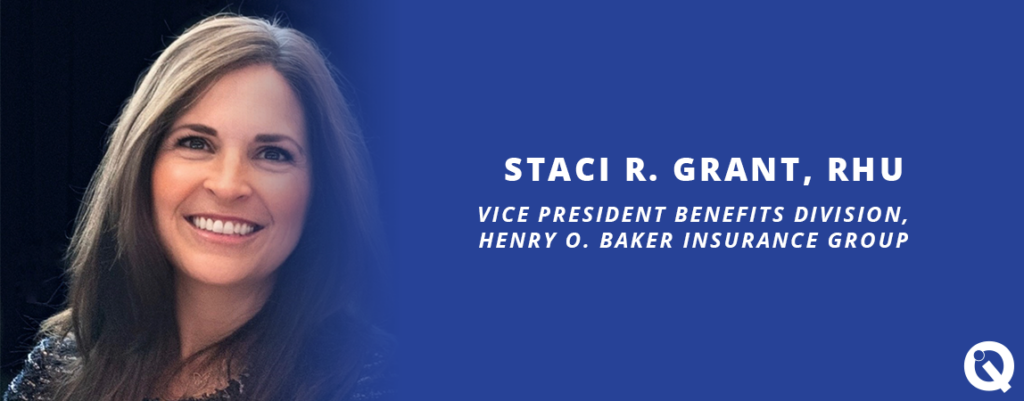Staci R. Grant, RHU, Vice President Benefits Division, Henry O. Baker Insurance Group.
Open enrollment season is here. What are your small employer clients seeing in terms of health insurance premium costs and any new options?
In the small employer market, we’re seeing premium increases anywhere from two and a half percent to 11 percent. The average will probably fall somewhere around seven percent. We have seen the maximum out-of-pocket go up. And there has been a slight decrease in some deductibles … but, again, the maximum out-of-pocket went up.
You worked with the Quality Institute and Senator Joe Vitale to look at the health of New Jersey’s small employer market and make recommendations to improve affordability and choice. Why do you think this market is in such distress — and can it be saved?
First, I want to say that being part of the Work Group was not only a privilege, but was fascinating to see behind the curtain of what goes into the making of legislation. Unfortunately, New Jersey is not alone with the problems facing small employers in the small employer health insurance market. But I am hopeful that if we can’t fix everything, we absolutely can work to save the small employer market.
I should add that the cost of insurance is expensive because the cost of care is expensive. Nothing within these bills is going to make this huge transition that we’re going to celebrate 20 percent decrease in premiums. What we need to do is chip away at the cost because employers and the employees are really struggling on the cost aspect of health insurance.
What are the most important elements in the two bills* now on Governor Murphy’s desk?
First, there’s some loosening of antiquated minimum standards to allow for carriers to be more creative on plan designs. The other more impactful element is to allow carriers to offer closed formularies. Under the current structure, if a drug is FDA approved, and medically necessary, for the most part carriers must cover it. Consumers and their doctors may have to jump through hoops to get it with pre-certifications and pre-authorizations, but it should be covered.
With closed formularies, insurers will be able to say specific drugs are not covered. They will not be able to stop covering entire categories of medications. But let’s say they will cover Wegovy, but not Ozempic. The idea is that insurers could lower premiums if they have greater control over pharmacy coverage, especially the expensive specialty medications. In the bills, though, there are still a lot of protections for employers and their employees.
For your clients shopping for health coverage for their employees, what are their priorities, even as they face sticker shock on premium increases?
Clients want every stone turned over as they look for options to keep costs down. They don’t want to keep having to transfer costs to their employees. Cost is the top priority.
Also important is choice and convenience. Long gone are the days where an employer picked one plan and offered it to everybody. I see, on average, three plans being offered to employees.
And they are not looking to make selecting and providing health insurance their full-time jobs. These are people with businesses to run. So that’s where brokers come in.
Finally, we like to ask a question beyond a person’s professional work. Can you tell us who your favorite New Jersey artist is, i.e., singer, writer, actor?
I would have to say Jon Bon Jovi. I love his authenticity and his music. And especially his commitment to New Jersey and the innovative charitable works he has done for our state.

